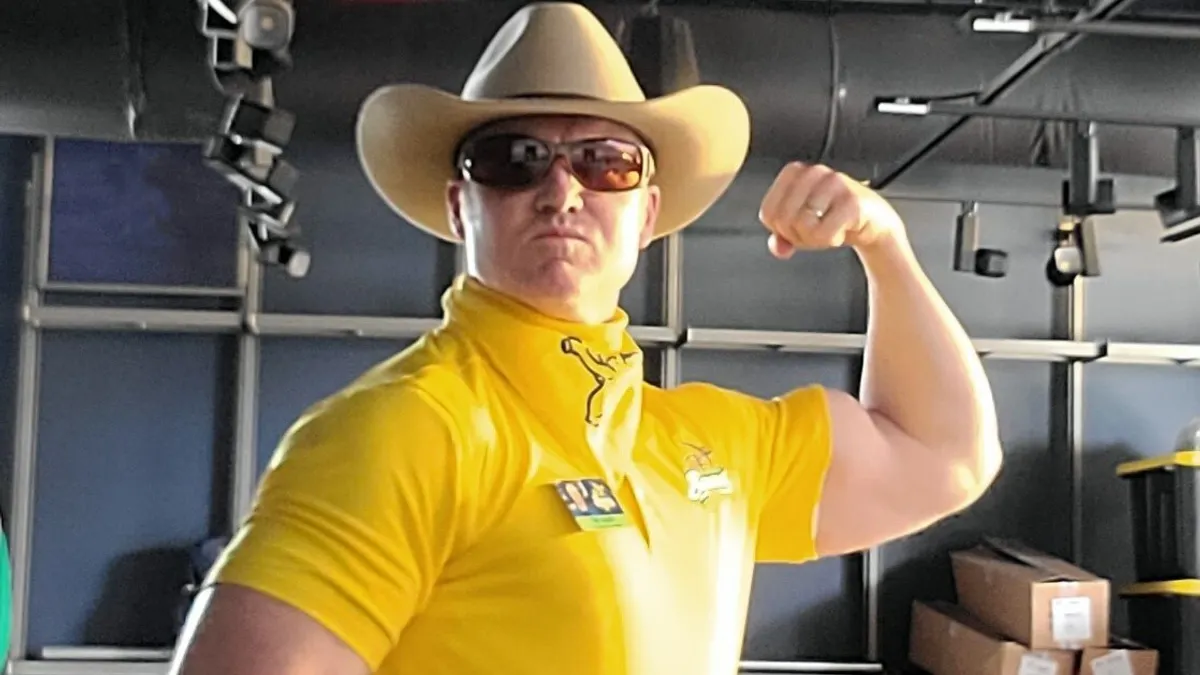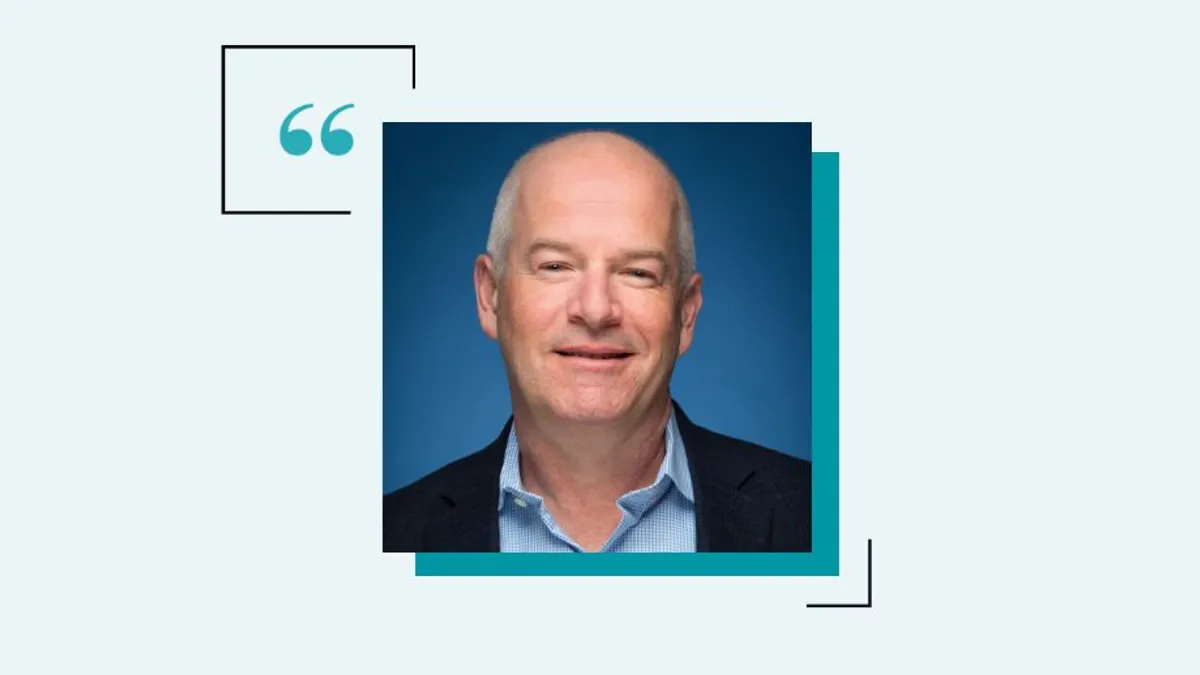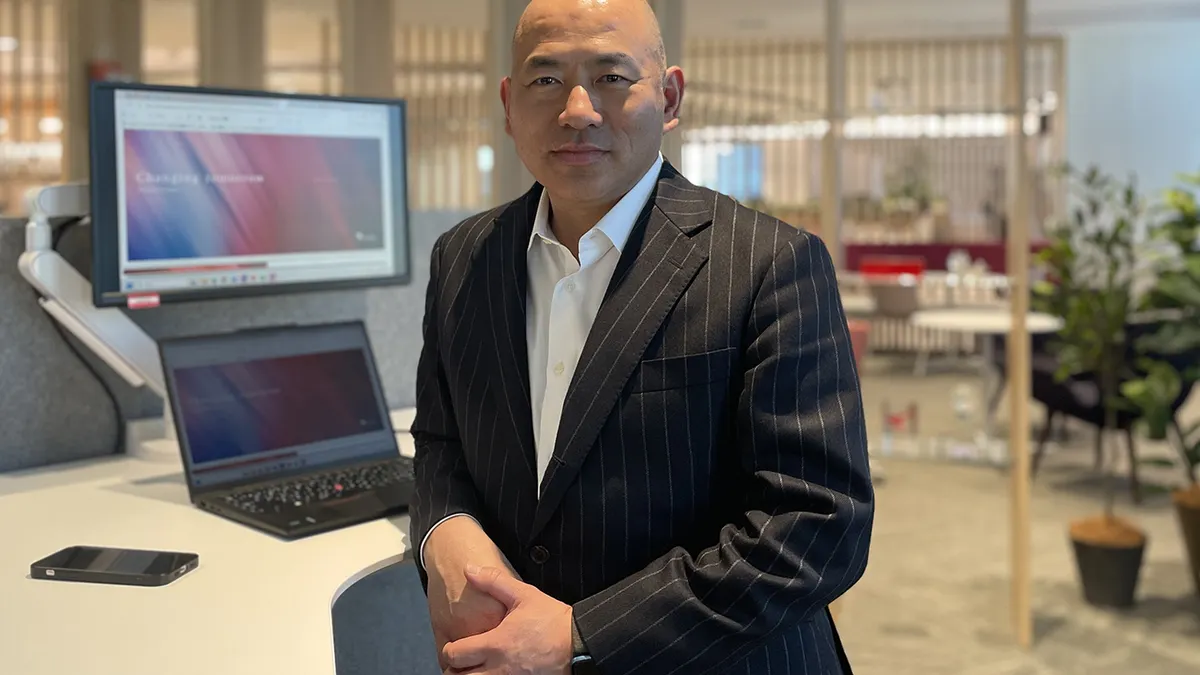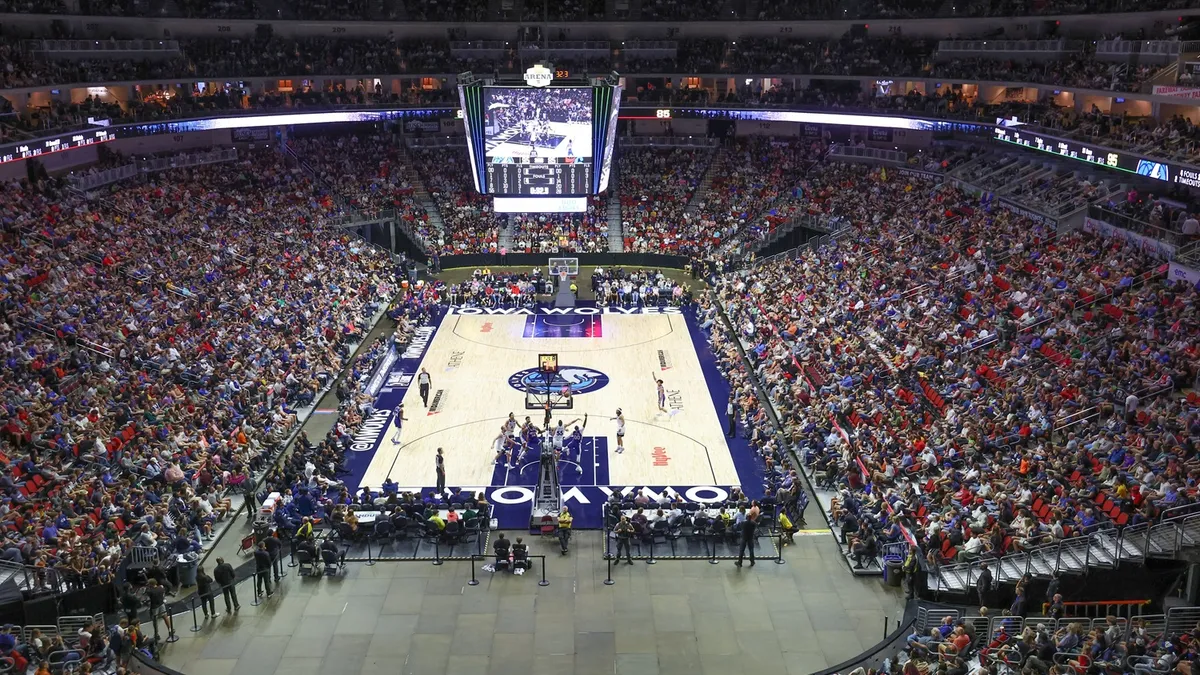The Savannah Bananas, an organization changing the ways fans experience baseball, has gone through tremendous changes as a company. They’ve successfully shifted their business model, exploded with growth, and become a social media sensation. From an organizational perspective, their growth progression would be a dream come true for many executives searching for ways to separate themselves from their competitors and surpass internal growth goals.
For Dr. Tim Naddy, vice president of finance for the Savannah Bananas, running the show from the numbers perspective wasn’t a job he ever envisioned having. After starting a data company that helped professional sports scouts make their calculations faster, Naddy, who has been a sports fan and was exposed to the industry as an external auditor for the Tampa Bay Lightning at PwC, was ready to move on to a new career.
With two of his children off to college and one ready to start high school, Naddy decided a little over a year ago that it was time to look for a new gig in the industry he worked adjacent to. So, after some searching, Naddy moved to Savannah, Georgia, took on a role as an adjunct professor at Savannah College of Art and Design, and joined one of professional sports’ most unique organizations in its lead finance role.
Joining the Team
“The way I got this position was through the internet, which I think is hilarious,” said Naddy. “When I’m bringing up students through the accounting programs, I tell them, ‘Don’t waste your time on job boards.’ If you need a job, let me know, and I will connect you with the people who need you. Accounting has always been about relationships, either with the Big Four, private equity, or what have you; you usually get jobs through relationships, not the internet.”
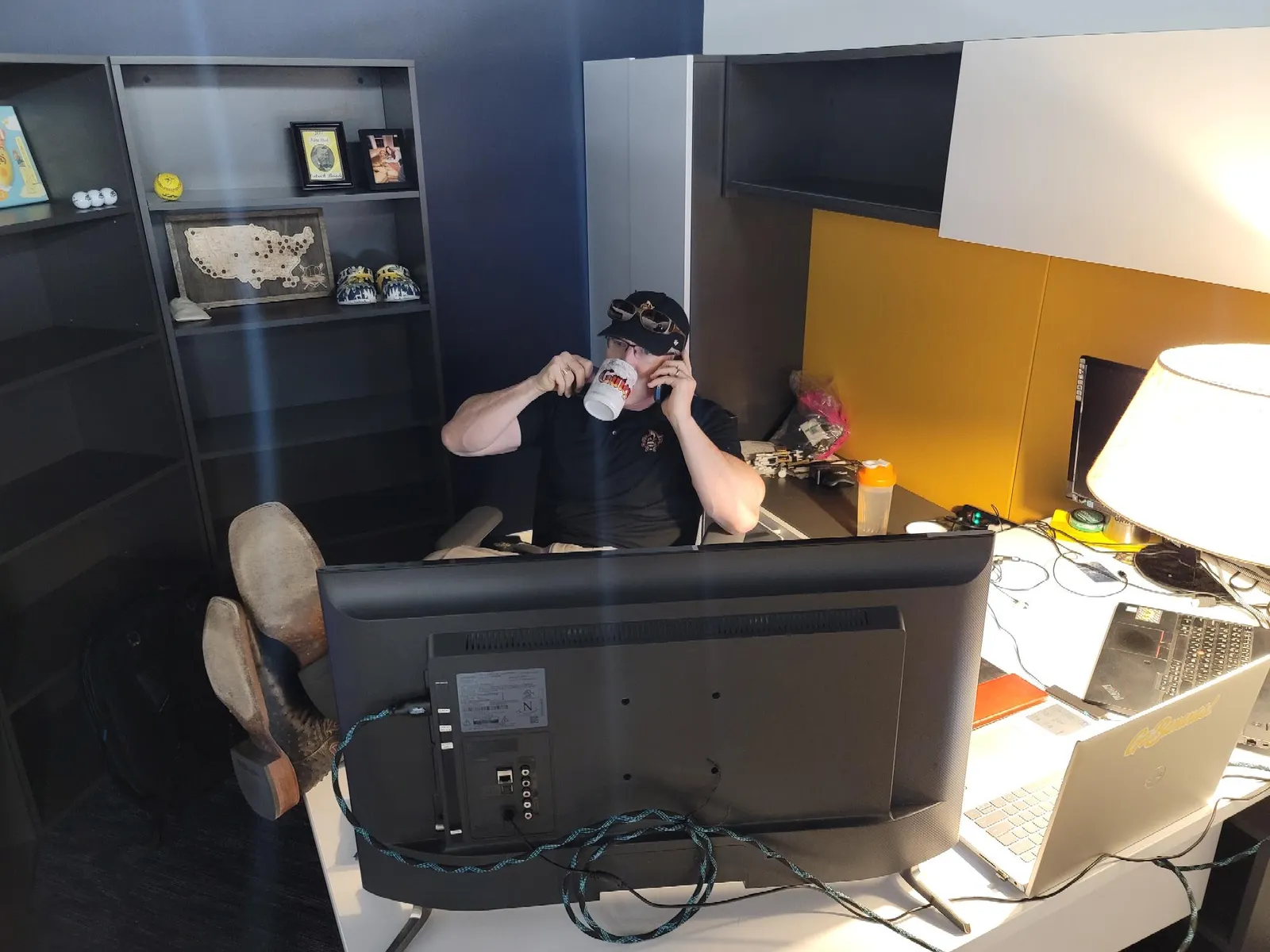
While his eyes were set on a handful of destinations to relocate his family, Savannah being one, Naddy didn’t know what he was getting himself into. “I applied online, went through the process, and went through the culture interviews,” he said. “When I told my family I was thinking about working for this crazy baseball team in Savannah, my niece knew about it and was like, ‘Oh my god, you need to go to this; this would be awesome.’”
According to Naddy, the team hinted at their plans to expand their business model before he came on board. “In the interview process, they did inform me they were thinking of having multiple teams and building a league,” he said. “And, from my perspective, that was great because I didn’t want just to go work for a baseball team. I have friends in financial roles at independent baseball and minor league teams, and let’s just say they have a rough time managing those things.”
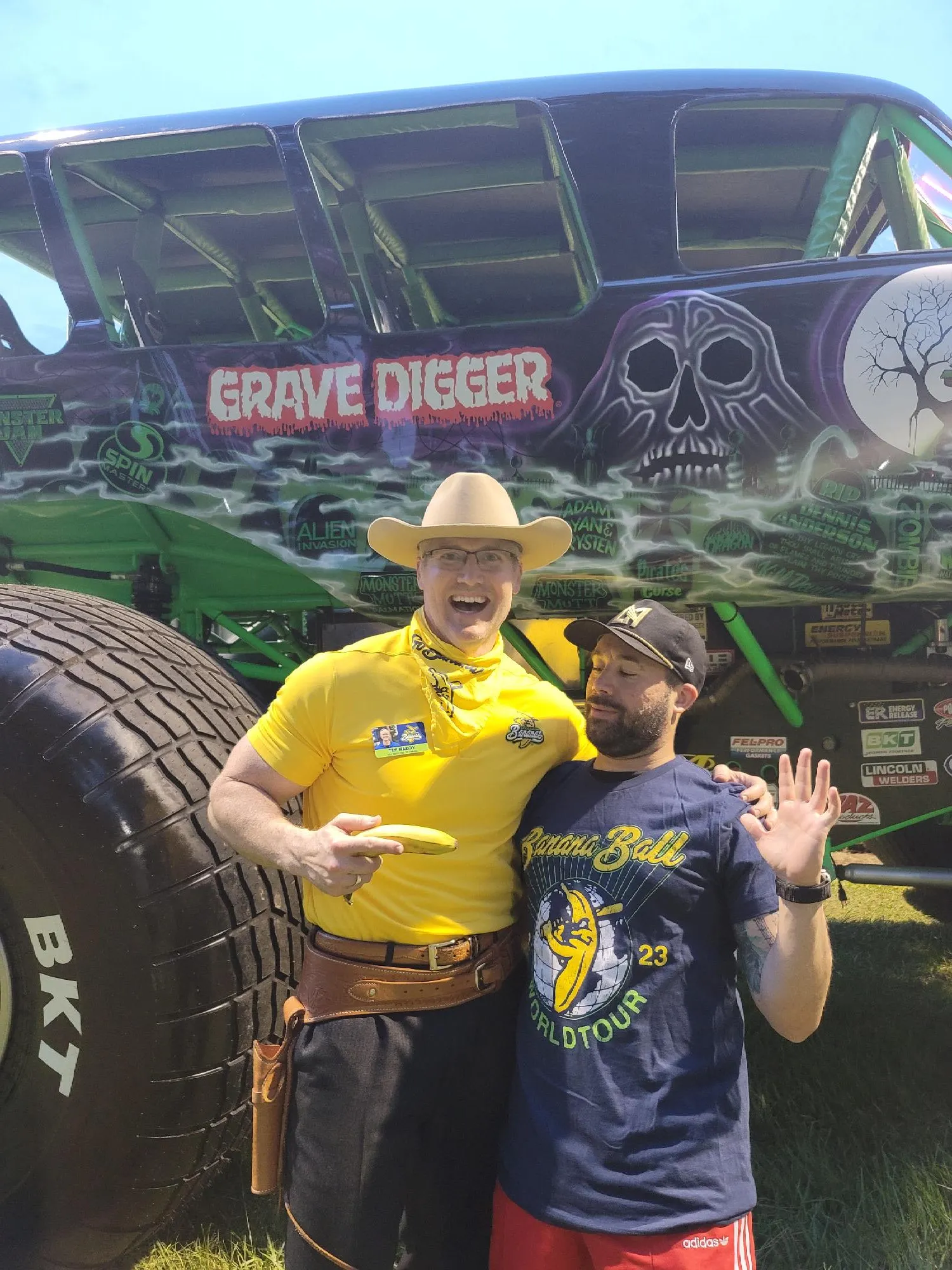
According to the finance head, mandates with no guidance or funding by the leagues make a financial leadership role on traditional baseball teams very difficult. “Pitch clocks are a perfect example of this,” said Naddy. “My buddy who was running a team told me a pitch clock just showed up one day, and they had to figure out how to get it all set up on their own. There are a lot of things that happen like that at that level.”
Naddy said he took the role because of the factors that made the Bananas primed for growth. “These guys were well on their way, and they weren’t doing the same old thing,” he said. “They knew it was time for them to go from a small organization to a growing corporation, and I was tapped to jump in and help with that process.”
Financing the Fan Experience
The Bananas’ mindset of being all-in on the fan experience means forfeiting some traditional professional sports revenue opportunities. The team has no stadium ads for home games in Savannah and offers all guests unlimited food and drink for games at Grayson Stadium. When Naddy came on board, his first instinct told him that these offerings were a little, well, bananas.
“As finance lead, I looked at our offerings, which was a bunch of cost going out the door, and said, ‘Guys, what are we trying to achieve here?’ They had crossed this bridge before I came on board, but I looked at it as what could be a major profit center being a giant cost center. But really, what it comes down to is it’s a loss leader. If a family of four comes to Savannah for the full four-and-a-half-hour performance, I challenge you to go elsewhere and find the same entertainment experience for anywhere around one hundred bucks.”
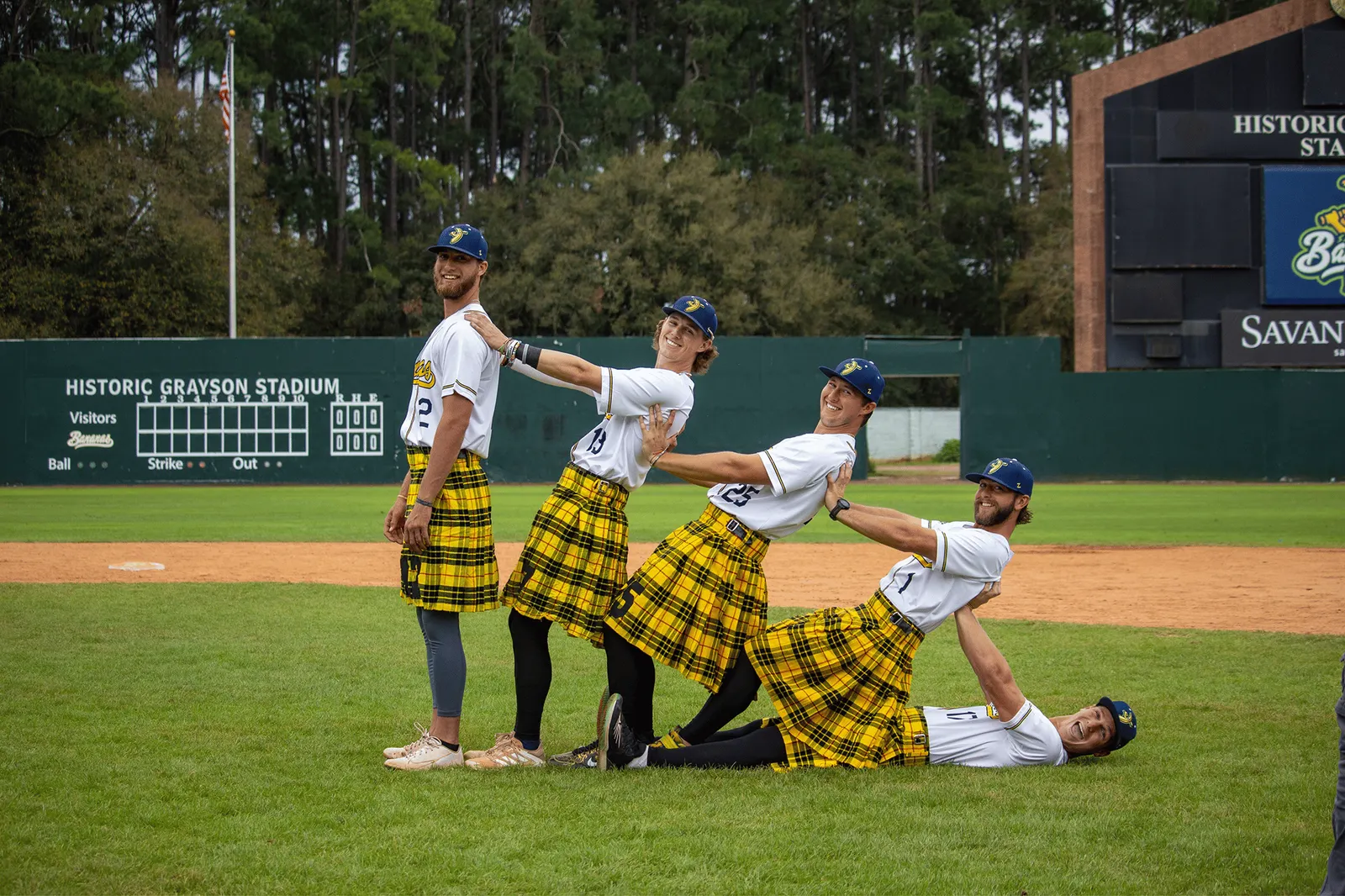
People feel like they’ve been given this experience, so they want to remember it, said Naddy. “The nostalgia of the event manifests itself in a cool hat, hoodie, mini bat, baby onesie, and more,” Naddy added.
At the end of the night, “What do you want people leaving with, a hot dog or a hoodie that they’re going to wear around their friends, talk about, and share how awesome all this is?”
Calculated risks like that make the Bananas as successful as they are. “Many of our fans have become happy billboards that share how this brand took care of them.”
A major key performance indicator for Naddy and his team and other finance leaders in baseball is the per capita spend per fan. According to Naddy, the Bananas rank right up there with some of the biggest names in the sport in fan spending.
“Per caps allow us to compare ourselves to the activity levels of other entities,” he said. “We can compare ourselves to Yankees’ merchandise sales, we can compare with that of the Phillies food and beverage operations, and what we find is that our per caps are extremely comparable to these teams, and we’re exceeding the levels at AAA ballparks. So, we’re right in the middle of the fight.”
Skyrocketing Logistical Demand
The team brings its merchandise on the road as part of its new business model, something most professional sports teams don’t do. Moving the massive amount of merchandise upon which the sustainability of the whole operation depended was a challenge. Combined with a rambunctious ownership group that makes on-the-fly demands to benefit fans and the experience, Naddy and his team were thrown some curveballs in the team’s first year playing Banana Ball on the road.
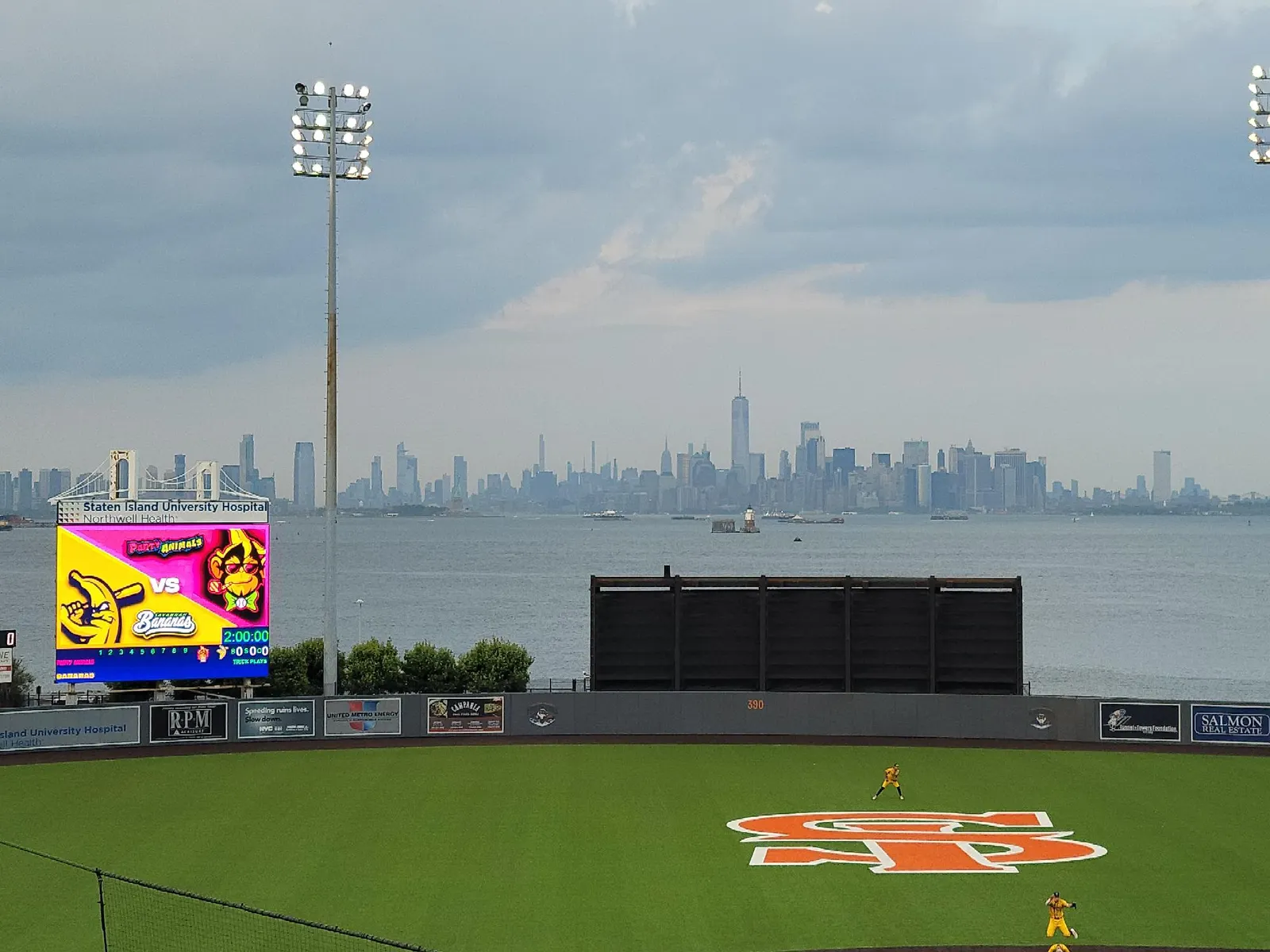
“We learned about logistics this year,” said Naddy. “We learned what we’re good at and horrible at. At one point, we thought we could just start a trucking company and do this ourselves, but we quickly learned that moving merchandise around the country and getting things in the right place at the right time is much harder than it looks.”
After the Bananas’ ventures into trucking weren’t enough to sustain demand, they had to outsource the shipping of their merchandise. “We said, let’s go ahead and pay professionals to do this, but there’s always the mentality of us wanting to have control over what we’re providing. the second we release a little bit of control, it’s possible that our brand could suffer, because we don’t know how this partner is going to interact with fans,” said Naddy.
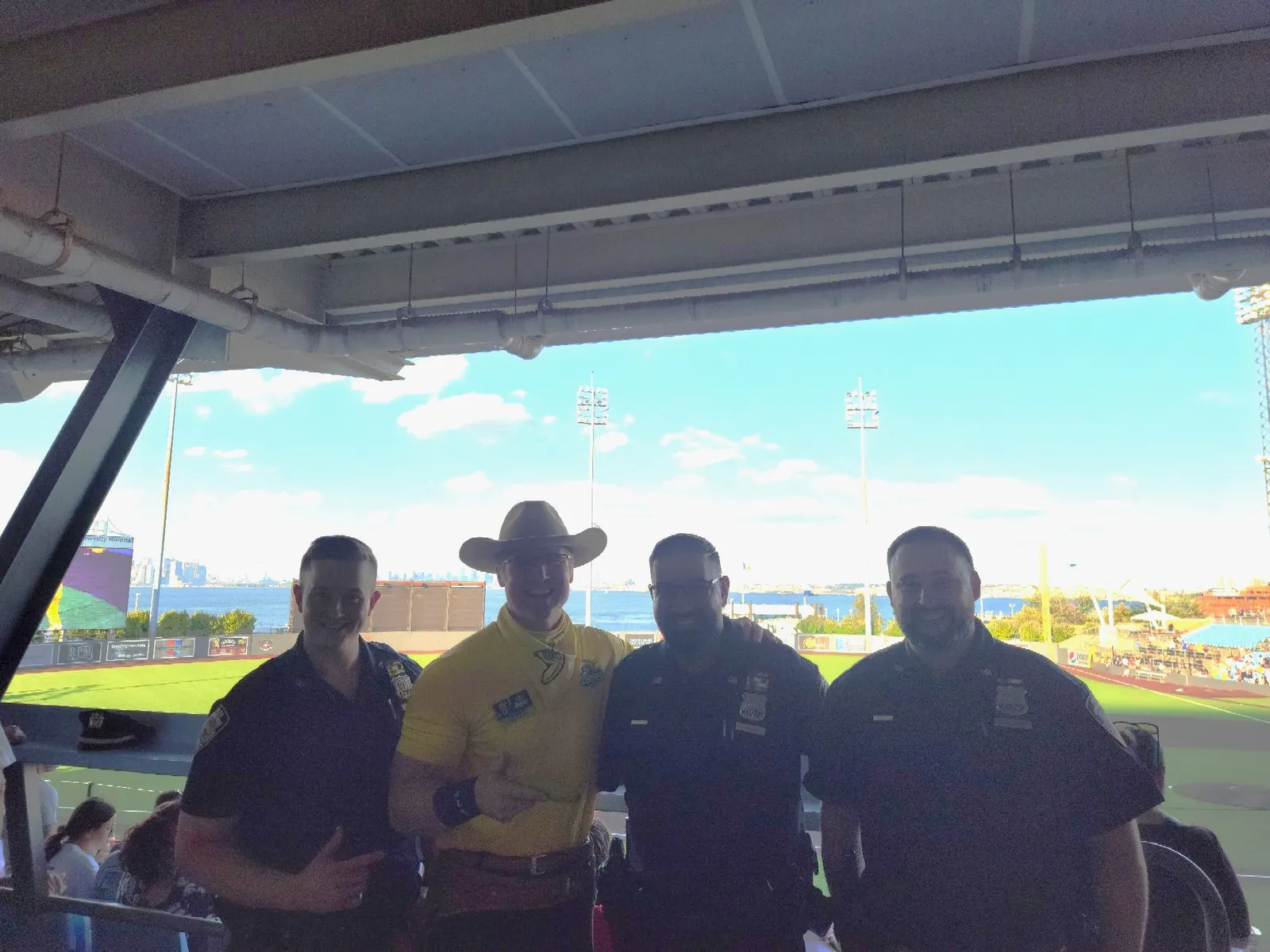
Demands from ownership, something many CFOs experience, is something Naddy has dealt with during his time with the Bananas, too. After constructing a stage outside the stadium in Savannah for entertainment before a game, a one-time experiment turned into an ownership demand that left Naddy and his team scrambling.
“Ownership loved the stage so much, they said we have to get a stage everywhere we went on the road,” he said. “If I could have planned this out, we could’ve done it much cheaper. However, this was in the middle of the season, and most stages of that size were already rented out. We had to pay a premium to get a stage put up on the road everywhere we went at a moment’s notice, and it was like ‘Man, I wish I would’ve known about this.’”
Communication with Ownership and Having “Phun”
“Anytime there’s a dollar sign, they always come to me; I’m the dollar sign guy,” said Naddy. Among all the lessons he’s learned about communication, he says the most important one is being accessible and willing to help. Rather than turning people away when they ask questions about things outside finance’s workflow, Naddy and his finance team strive to be an open resource throughout the company.
“I’ve learned that when people come up with a question about something like payroll, I don’t answer that question with ‘That’s not my department.’ We answer that question with, ‘Well, how can I help you?’”
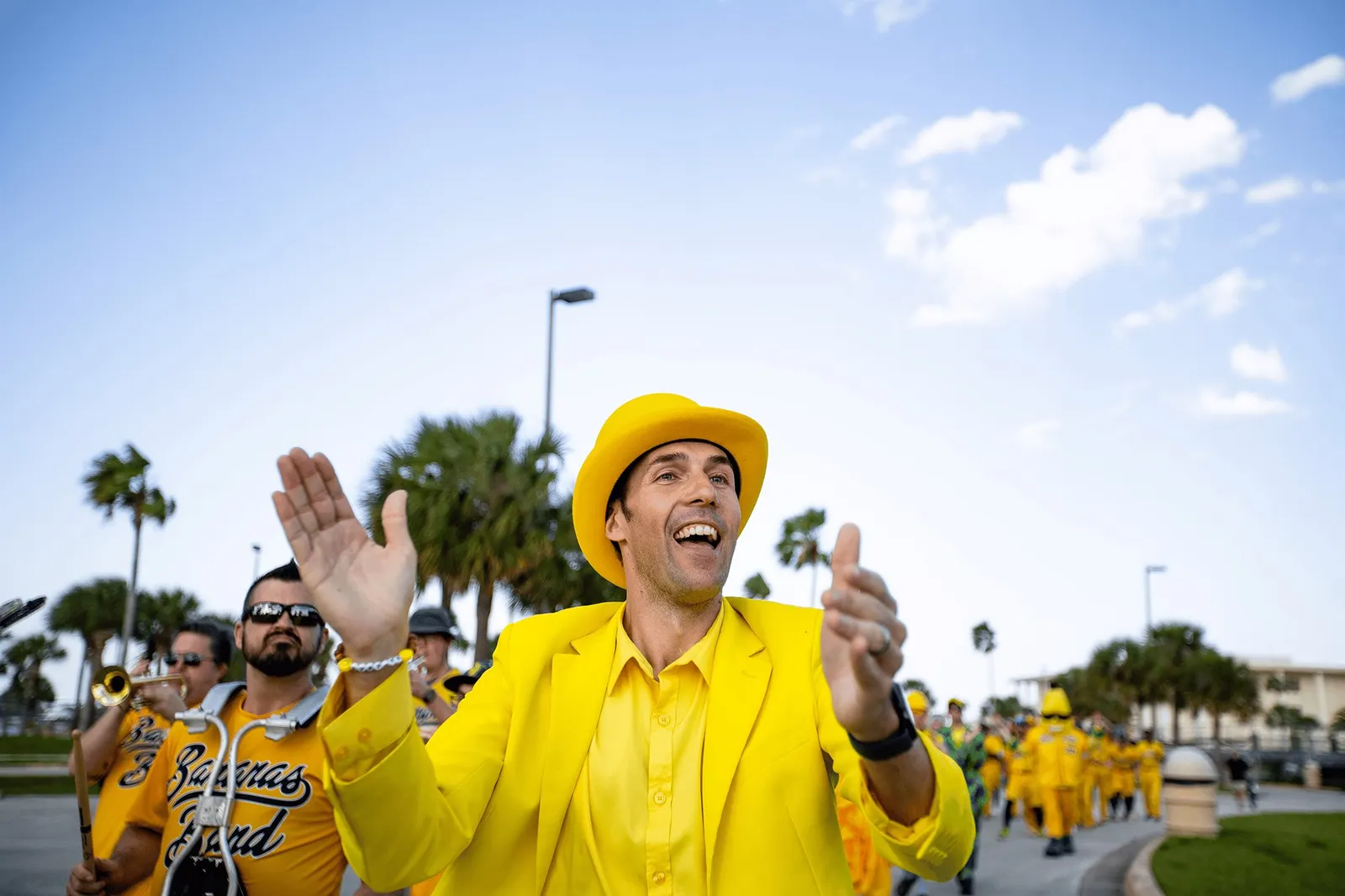
“[The GM] and ownership are yin and yang,” he said when asked about their relationship and his involvement. “[The GM] is the more pragmatic of the two; he’s looking at numbers and data and leans on me to create those models, put those assumptions out there, and see where they go. Which, from a puzzle-solving perspective, is something I love.”
“Because we’re the Bananas, frankly, my job is atypical to the normal finance role. Every other department had their thing, and I couldn't stand that we were the nerds of a very slick and fun marketing experience, so we started having fun and turned our F’s into PH’s,” Naddy said. “For our team, phinance is phit, phun, and phasionable.”
This is part two of a three-part series. Read part one here. Part three, an outlook of the team’s future featuring takes from GM Jared Orton and Naddy, is here.



